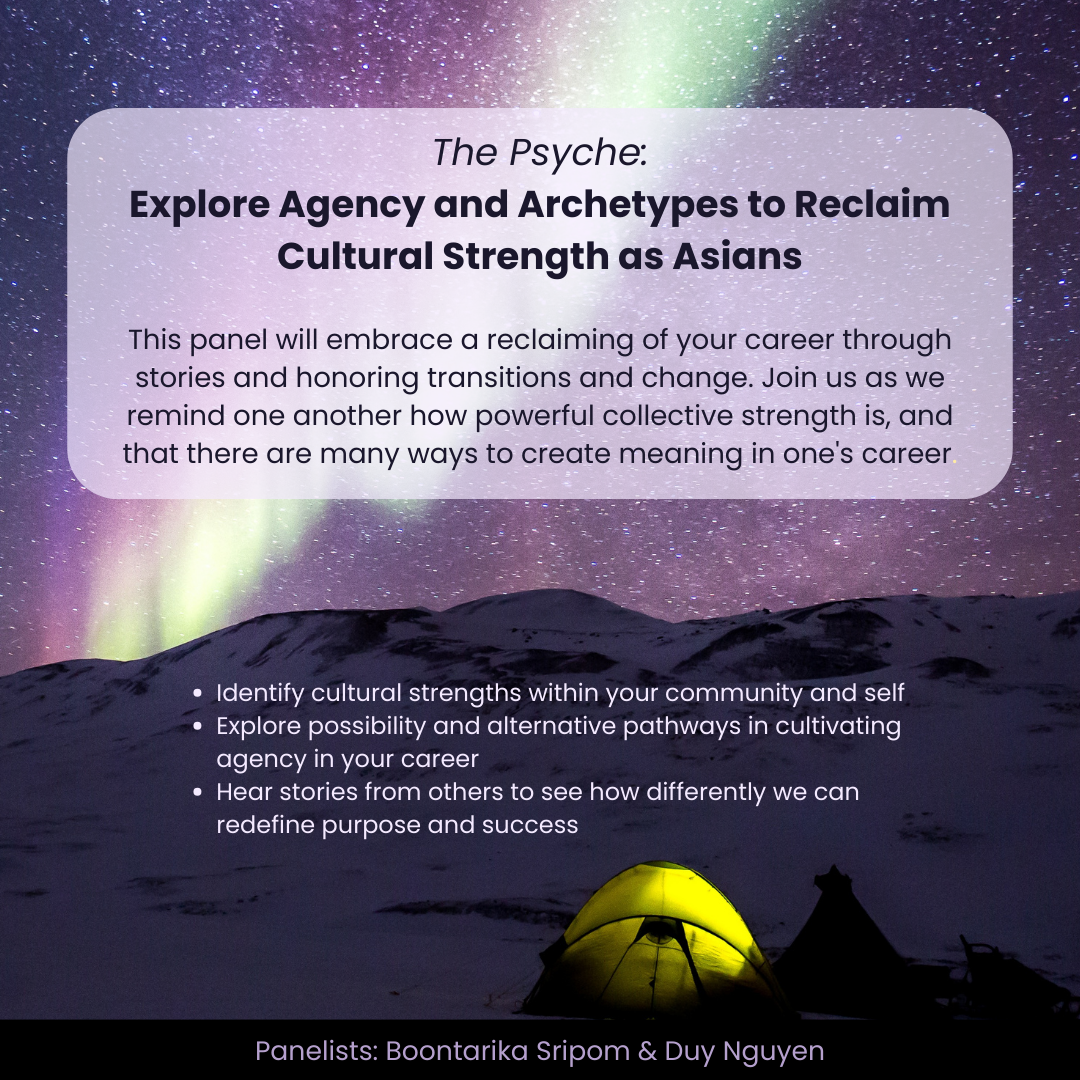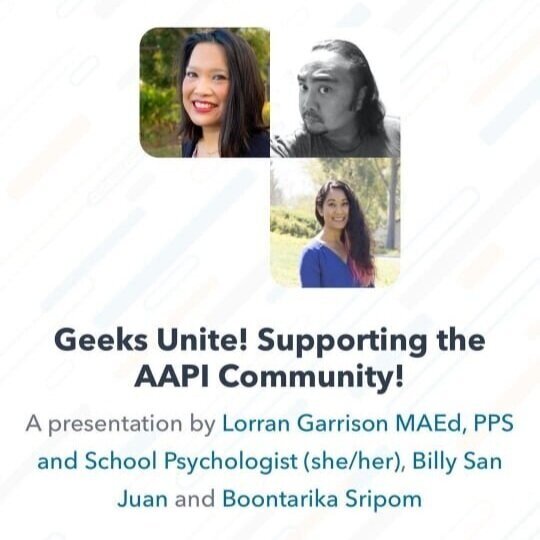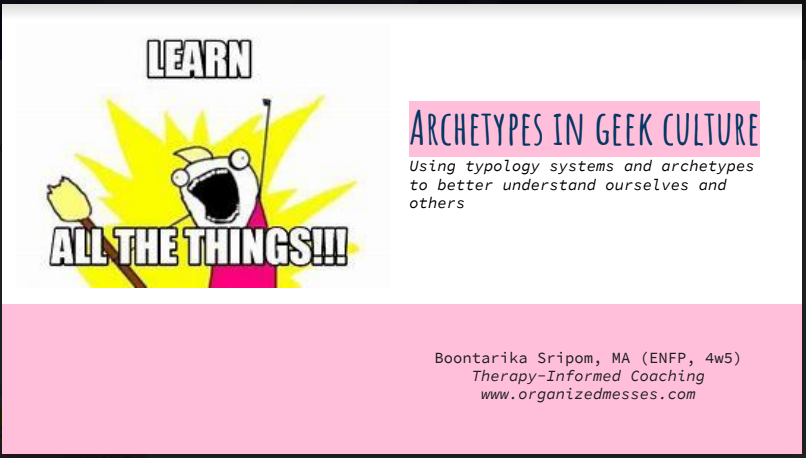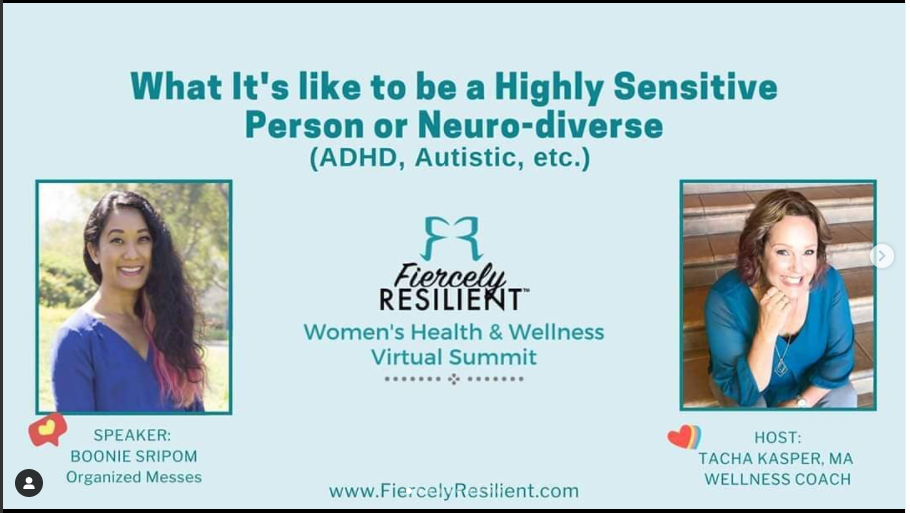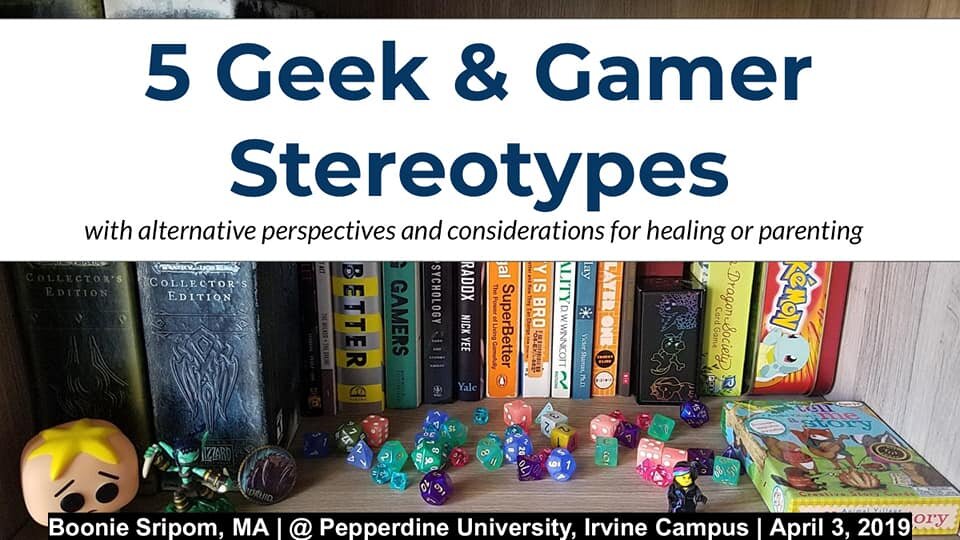Discover Self-Compassion and Empathy by Understanding Your Mental Health Through the Lens of the Enneagram
Heart Types Panel - 2s, 3s, and 4s
Eden Hyder, Stephanie Cross, Jordin James, Amanda Nagy, Joanne Kim, Boonie Sripom
Personality themes explored with how mental health is experienced and coped
Strengths of our types are identified and shared to encourage perspective shifting and self-compassion
Some topics include: imposter syndrome, depression, autism, adhd, narcissistic abuse, professional work as coaches and therapists
The Psyche: Explore Agency and Archetypes to Reclaim Cultural Strength as Asians
This panel will embrace a reclaiming of your career through stories and honoring transitions and change. Join us as we remind one another how powerful collective strength is, and that there are many ways to create meaning in one's career.
Identify cultural strengths within your community and self
Explore possibility and alternative pathways in cultivating agency in your career
Hear stories from others to see how differently we can redefine purpose and success
Applying the Hero’s Journey, Archetype Systems, and Play Therapy in Video Games
Applying the Hero’s Journey, Archetype Systems, and Play Therapy in Video Games, presented by Let’s Play Therapy Institute
We are a culture guided by myths and archetypes. Tales of heroism and triumph fill the landscape immersing us with hopes of possibility. We wish to be heroic, and we see heroism in ourselves.
Every now and then a story and its characters offer companionship when we feel lost or misunderstood. Sometimes, there’s that ONE character that speaks to your soul and you feel SEEN. Sometimes, a narrative filled with hardship, loss, encouragement, overcoming, and transformation resonates and can describe your essence more easily than a list of words.
The Language of Archetypes can be an effective supplemental tool in play therapy and personal development. As helpers, we can use an archetypal lens to further explore the potential values, universal fears, and strengths manifested in a client’s video game play.
As helpers and individuals with unique archetypal profiles, we have our own heroic journeys to pursue. Inner knowing of our heroic processes allows us to continue personal and professional growth while honoring the stages at which our clients are experiencing.
This workshop is designed to help you start identifying your archetypal profile, potential archetypes in clients, and how to use different archetype systems to support play therapy with video games. Parts of the Hero’s Journey will be highlighted and discussed. Participants will explore aspects of their Personas, Personalities, and Shadow in relation to personal and professional work.
Facets of the Neurodiversity Affirming Paradigm will be weaved into the conversation to honor nuanced experiences of the differently wired (ex: Outcasts, Idealists). As gamers and neurodivergent people are marginalized and misunderstood, there is a layer of affirmation and reality of being different that must be recognized in our work as helpers with ethical foundations to adhere to. This workshop welcomes all archetypes to come and embrace their wholeness.
How Archetypes Make Us Who We Are
SHOW TOPICS
How knowing your own archetypes can help uncover your authentic self
Why it’s a struggle to be a twice-exceptional (2E) gifted person
Your authentic self might be masked by a persona — and that’s OK!
Being inspired by Catwoman and the Saga comic book series
What’s it like to be a performer and embrace two different identities?
“To be yourself in a world that is constantly trying to make you something else is the greatest accomplishment.” -Ralph Waldo Emerson
link to listen: How Archetypes Make Us Who We Are <<
Executive Function Skills & Sensory Overwhelm for the Neurodivergent Student
executive function skills and sensory overwhelm for the neurodivergent student, Boonie Sripom
Three-hour workshop presented to school social workers and administration.
Explore a neurodivergent experience
Learn traits of neurodivergence
Learn the importance of PLAY
Define Executive Function Skills
Describe types of coregulation & play to support Sensory Overwhelm & EF Skills in the classroom
Embracing Intensity 2022 Guest Call - The Importance of Play (for 2e gifted, neurodivergent communities)
The Importance of Play
For the creative, differently wired, and divergent thinker, play can be as natural as breathing. For some of us, there are layers of shame or uncertainty that inhibit playing across the lifespan. We may be separated from an essential part of maintaining authenticity. This conversation will explore the power of play, sprinkle archetypal journeys within play and fandoms, and encourage listeners to honor their inner children by playing. To those who continue playing: My inner child honors yours. I just waved at you across the playground. :)
Join the Embracing Intensity Community
SDCC marks are owned by SDCC and used under license.
How to Apply the X-Men * Other References: Learning & Supporting the Needs of the Neurodivergent, BIPOC, LGBTQIA+
Lorran Garrison, Leo Partible, Tara Avery, and I share personal stories on how comics and the X-Men shaped our lives in terms of self discovery, finding and creating community. Our stories are of countless that reflect the importance of representation and seeing ourselves in pop culture and the myths that powerfully impact us all. These stories continue to encourage us to become the heroes we always were.
The Power of YOU; Supporting the BIPOC Community, Lorran Garrison, Ronald Smothers, Boonie Sripom
The Power of YOU: Supporting the BIPOC Community
I have the honor to help share on supporting the BIPOC community through a systemic lens in terms of school psychology. Lorran Garrison is setting us up with terminology and painting the picture of microagressions and implicit biases. Ronald Smothers is bringing facts on the financial impact of intergenerational policies and actions that robbed the Black community.
I'm taking it home with Bowen Family Systems as a lens for social justice and why Critical Race Theory matters. We will all share on allyship in action solutions and conversation strategies to decenter and make it uncomfortable. Change happens when we get uncomfortable with intention, broaden perspective.
Video Games, Executive Function Skills, and Therapy?! An Invitation to Play & Explore Co-Presented with Janina Scarlet, PhD
Video Games, Executive Function Skills, and Therapy?! An Invitation to Play & Explore
Co-Presented with Janina Scarlet, PhD
There is something magical and misunderstood about video games. They provide joy and entertainment to countless people around the world. Games allow us to challenge ourselves to complete levels of varying difficulties, explore dungeons to fight monsters, or discover new worlds. We can play alone, with friends, or strangers across the planet, however stigma about the culture permeates the mental health community.
Video Games, EF Skills, and Therapy with Janina Scarlet, PhD for the Superhero Therapy Conference
There is a misperception that games are only for children, and an unproductive use of time. It may be common for mental health professionals to overlook exploring how impactful video games may be in a client’s life, bypassing a potentially powerful tool in the practice of therapy. This talk will explore a gamer perspective on these stigmas as well as introduce benefits of video game play. This talk will also introduce how mental health professionals can support executive function skills development in the practice of therapy using video games.
Video Games in Play Therapy: Supporting Executive Function Skills of the Neurodivergent, Let’s Play Therapy Institute
Video Games in Play Therapy: Supporting Executive Function Skills of the Neurodivergent
The Neurodiversity Affirmative movement continues to promote acceptance and new perspectives on being differently wired. As play therapy embraces the natural language of children, it can also be used to support the executive functioning skills of neurodivergent gamers. Video games in play therapy can be used to facilitate such executive function skills as stress management, task initiation, and self-regulation.
Video games can use a gamer’s metaphors to teach moral development, creative problem solving, and working memory directly and indirectly. This bridging of worlds using video games in play therapy can increase acceptance and self-compassion of being different, something the neurodivergent community greatly needs.
Lost & Found: Finding Virtual Communities & Belonging in Fandoms
We hear about being a part of a community in areas such as work, school, sports, religious, and cultural communities, for example, but what about non-traditional spaces? What can they offer? Jamila Mahfudh, Licensed Marriage and Family Therapist (LMFT), Boontarika Sripom MA (ENFP 4w5, neurodivergent), and Lorran Garrison MAEd, PPS and School Psychologist (she/her) discuss how non-traditional, online spaces provide opportunities for people to feel connected and accepted.
Virtual spaces allow people to embrace the nuances and complexities of identity, intersectionality, and authenticity, especially for BIPOC, LGBTQIA, neurodivergent and marginalized people, and find a place to belong. To this day, there continues to be identities and communities that are valued less or silenced, but with the existence of fandoms and online communities, people can reclaim their voices, their preferred narratives and identities, and have reparative experiences in community with others. Join in on the discussion and explore ways in which you can support others in finding their community—or find a new one for you!
TAGGS keynote: Geeks Unite! Supporting the AAPI Community
Asian/Pacific Islanders are portrayed as “model minority.” This label misrepresents the individual struggles of immigrants, and their progeny. Join three experts as they discuss personal stories of discrimination based on the model minority assumption, and explore the socio-cultural and historical aspects of how it came to be.
Archetypes in Geek Culture: Using Typology systems and Archetypes to Better Understand Ourselves & Others
Mercedes Samudio, LCSW, a phenomenal mental health advocate, parent coach, licensed clinical social worker, founder of a parenting conference and nonprofit!, and a profoundly accomplished author colleague and friend invited me to lecture her class this week. I get to choose the subject. Geek culture and Archetypes! Of course!!!
I introduce Myers Briggs Types and Enneagram Archetypes to Chapman University psychology undergrad students and weave personality into the fandoms and characters we resonate with. These archetypes can be a bridge to self-understanding as well as exploring the perspectives of others personally and professionally.
Joyful Courage Mini Summit: Teens & Screens
A better understanding of gaming and gaming communities & strategies to connect with the gamers in your life.
Fiercely Resilient: Women’s Health & Wellness Virtual Summit | What It’s Like to be a Highly Sensitive Person or Neurodiverse (ADHD, Autistic +)
What It’s Like to be a Highly Sensitive Person or Neurodiverse (ADHD, Autism +)
With this conversation, I explore the umbrella terms of being a Highly Sensitive Person (HSP) and intersections of neurodiverse experiences such as ADHD and Autism. The importance of video games and virtual worlds is also explored as a valid lifestyle and important part of someone’s like for their own reasons.
I was exploring and mapping out my own experiences and those of people I’ve met across the lifespan. The Neurodiversity Affirmative movement had grown where increased acceptance of differently wired brains and bodies were catalyzing many people to question and embrace who they truly are. I was at the peak of my acceptance journey when we had this conversation.
Pop Culture Media Therapy & Mental Health Practice @ University of St. Augustine School for Health Sciences, 2019
Lunch N Learn: Pop Culture Media Therapy & Mental Health Practice
Pop Culture Media Therapy & Mental Health Practice @ University of St. Augustine School for Health Sciences, 2019
Jamila Mahfudh, Licensed Marriage & Family Therapist, Boonie Sripom, Life Coach, and Lorran Garrison, School Psychologist intern
Lorran spoke in the realms of school psychology, counseling and interdisciplinary practices. Social-emotional skills were taught pairing tools with Inside Out characters. She spoke of her inspiration and diverse multicultural background and connections to the geek community. I spoke as a college counselor for art students and a life coach, about being different. Having invisible conditions like chronic pain, high sensitivity, neurodiversity, and Jamila put it all together as a licensed marriage and family therapist working with teens and substance abuse. She spoke on the importance of Pokemon in her life and how it offered connection and how she uses the client's world to speak to them. Of course I talked about archetypes and The Heroe’s Journey ^__^
Creatives & Stress Management, 2019, Ladies Wine & Design - Irvine
Creatives & Stress Management
Creatives & Stress Management, 2019, Ladies Wine & Design - Irvine
The body’s fight, flight, freeze, or fawn response is quickly described. Identifying how one’s body or behaviors respond to stress are highlighted and explored. The differences between stress and burnout are also shared. The creative mind, differently wired brains, and Dabrowski’s Over Exciteabilities (OE) are paired with working in the creative industry, how draining it can be to take in so much information.
The potential crashing or burning out can be prevented by strategies on wellness, however, gender identity stereotypes and obstacles with asking for what we need may make it difficult to be open to support. Communication skills and body awareness are practiced, and acknowledgment of systemic barriers in professional realms is honored. I led a guided visualization, and it was a feeling of collective serenity.
Geek & Gamers Stereotypes, with alternative perspectives and considerations for healing and parenting, 2019
5 Geek & Gamer Stereotypes, with alternative perspectives and considerations for healing or parenting
Geek & Gamers Stereotypes, with alternative perspectives and considerations for healing and parenting, 2019
Pepperdine University, 2019
Chapman University, 2019
San Diego Psychological Association (SDPA Diversity Committee), 2018
I spoke to Clinical Psychology students delving into the world of healing to share the richness and history Geek and Gamer culture has. This information can and will be beneficial for professional healers to use in therapy spaces. Acknowledging biases, subtle stereotypes, and leading with openness helps all professional healers increase connection and attunement with their clients. The impact of these stereotypes and assumptions are also discussed. Strategies for connecting as parents and loved were shared.
I may or may not have talked about archetypes. :)
Coslosseum 2019, Cosplay, Comics, Gaming, & Mental Health - Lorran Garrison, Tiki Inacay, Boonie Sripom, & Jamila Mahfudh
Cos-losseum 2019, Cosplay, Comics, Gaming, & Mental Health
Coslosseum 2019, Cosplay, Comics, Gaming, & Mental Health - Lorran Garrison, Tiki Inacay, Boonie Sripom, & Jamila Mahfudh
Lorran Garrison, School Psychologist intern, Ruth “Tiki” Inacay, PsyD in Marriage Family Therapy Candidate, Boonie Sripom, Life Coach, Jamila Mahfudh, Licensed Marriage & Family Therapist
Shared stories of cosplay, geek culture, and comics impacting our lives, personal development, and weaving mental health practices into using a person’s language to help them heal. From school psychology and counseling, to understanding neurodiverse and sensitive individuals, and working with youth in group homes for psychotherapy, geek culture has its power to help people be their true selves. Yes I mentioned archetypes :3
Highly Sensitive People & Artists, 2018, Sharon Chan LMFT & Boonie Sripom, MA
Highly Sensitive People & Artists
Highly Sensitive People & Artists, 2018, Sharon Chan LMFT & Boonie Sripom, MA
Sharon Chan, LMFT & Boonie Sripom, MA
We discuss the D.O.E.S. model and traits that potentially identify a Highly Sensitive Person (HSP) through Elaine Aron’s book and research. These traits of sensitivity are paired with being an artist or thinking differently. Strategies for managing energy or overwhelm are discussed and practiced.
Sharon Chan LMFT is a therapist for Highly Sensitive adults and children.
Gaming & Harassment, UCI eSports Girls’ Summer Camp, 2017, Ben Kempenich & Boonie Sripom
Gaming & Harassment: Strategies to Identify, Work Through, & Avoid Harassment
Gaming & Harassment, UCI eSports Girls in Gaming Camp, 2017, Ben Kempenich & Boonie Sripom
Ben & Boonie speak at UCI eSports Girls in Gaming Camp on online gaming safety.
Girls aged 11-17 share stories with gaming, how toxic or supportive certain games can be. Harassment is defined in the realms of in-game and out of game behaviors. We discuss the numbers or research on harassment, and strategies to play as safely and enjoyably as possible. We end with activities on managing stress, rage quitting, and being accountable for teammates as eSports players.
Click here to learn more about UCI Girls in Gaming Camp Registration for Summer 2020 soon~!
SDPA Committee Event - Gamers
San Diego, 10/2017
Want to learn more about Gamers?
Common stereotypes of Video Gamers
Alternative Perspectives
Strengths-based and application outside the game
Presented by San Diego Psychological Association Cultural Diversity Commitee
5 Things Games in Your Life Want You to Know, 2016
5 Things Gamers in Your Life Want You to Know
Tustin Library, 2016
This talk explored common myths of video gaming culture. Personal stories and some historical moments in gaming were shared to reframe a culture that can get misunderstood by its stigmas and sensational news mentions. Strategies parents and loved ones can implement at home were offered and discussed. Potential warning signs and general guidelines on gaming were also identified.
It was the first time I publicly spoke on video game culture, as well as archetypes. :)
Guest Appearances & Conversations
Being Highly Sensitive & Alternative Paths to Education, Think Weird Podcast, Helen Garcia
Neurodiversity, Gaming, & AAPI Collectivism, Untying Knots Podcast, Perry Clark LMFT
ENFP Females Live Boontarika Sripom, Heidi Priebe, Heart of Michi, Ask A Hippie, Sara & Aisha—Joyce Meng
ENFP Enneagram 4 Live Panel Boontarika Sripom (Organized Messes), Crystal Duan, Chloe & Shayna—Joyce Meng
What a Healthy Enneagram 4 Looks Like, Hayden Lee Coaching
Geek Culture & The Search for Self Acceptance, Prospect Therapy
Level Up Your Life!, Geekoscopy 101 Podcast
Helping Others Empower Themselves, Embracing Intensity Podcast
Gaming & Mental Health w/ Life Coach Boonie Sripom, Mental Health 411
Reboot Podcast Episode 2: Online Gaming & Tech Use, guest of Dustin Weissman, PsyD
How Asian Family Pressure vs Desire For Freedom Affects Mental Health, guest of Niam Sun
Asian Stereotypes & How to Use Myers Briggs to Reassure Your Identity, guest of Niam Sun
Student Spotlight, The Amplifier Magazine, Division 46 of the American Psychological Association, guest of Shayne Aquino

